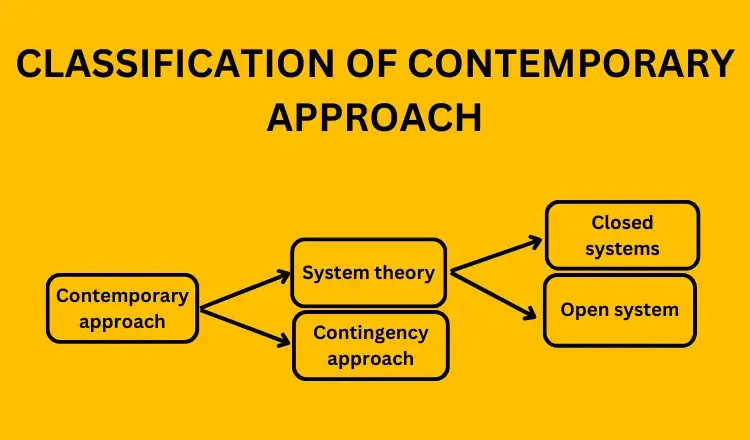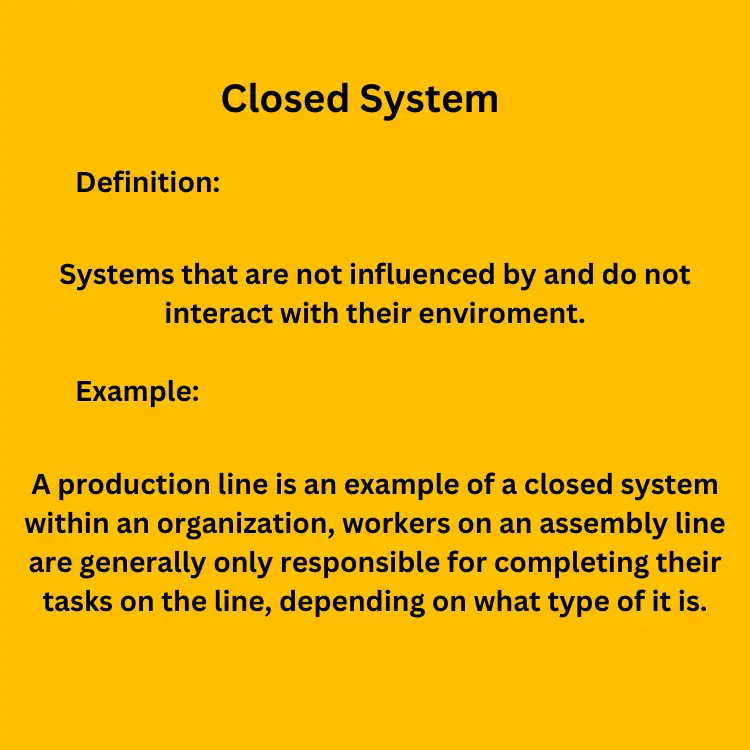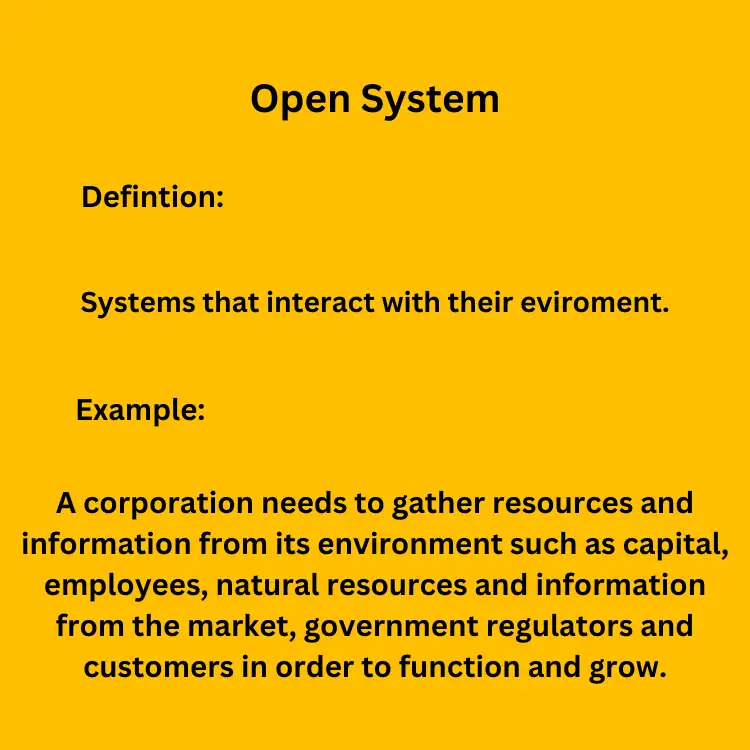In today’s fast-paced business world, it’s crucial to stay ahead of the curve. That’s why understanding contemporary approaches to management is essential. Companies that fail to adapt to modern thinking risk falling behind. Contemporary management approaches focus on aligning goals with stakeholder interests and being flexible in the face of change. No longer can organizations rely on traditional management styles. The new era calls for a more progressive, holistic approach to leadership.
What are Contemporary Approaches to Management?
Contemporary management approaches focus on aligning goals with stakeholder interests and being flexible in the face of change. The new era calls for a more progressive, holistic approach to leadership. In recent years, researchers and practitioners alike have been exploring how businesses can adapt and grow within rapidly changing environments. One notable trend is the shift towards more collaborative and flexible organizational structures, which encourage innovation and foster greater employee engagement.
Contemporary management focuses on adapting to the ever-changing business environment by utilizing a range of principles and techniques that empower managers to successfully navigate through the complexities of their organizations. This is in contrast to classical management theory, which applied more rigid rules and processes, such as scientific management. Contemporary management is more suited to the dynamic, globally interconnected world we live in and takes into account the influence that technology, societal values, and economic factors have on our organizations.
In recent years, researchers and practitioners alike have been exploring how businesses can adapt and grow within these rapidly changing environments. One notable trend is the shift towards more collaborative and flexible organizational structures, which encourage innovation and foster greater employee engagement. This includes an increased focus on teamwork, open communication channels, and a culture of trust and transparency.
Another important aspect of contemporary management is the emphasis on maintaining a balance between the needs of various stakeholders, such as employees, customers, and investors. This approach seeks to promote the long-term success of an organization by considering the broader impacts of its decisions and fostering sustainable growth.
Of course, implementing contemporary management is not a one-size-fits-all approach. Just as organizations differ, so do the strategies and techniques that will work best for them. However, having a solid understanding of recent trends and being prepared to adapt and grow in the face of challenges is essential for any modern manager.

Emerging Leadership Styles
You might be wondering what are the contemporary approaches to management in today’s fast-paced world.
Beyond Classical Leadership
In the past, classical leadership theories usually focused on traits, behaviors, and situational approaches. However, with the evolving nature of work and organizations, new leadership styles have emerged in response to the increased complexity and diverse needs of the workforce. Some of these include charismatic leadership, authentic leadership, and leader-member exchange (LMX) theory.
Charismatic leadership emphasizes the leader’s ability to inspire and motivate others with their charisma and vision. Authentic leadership focuses on the importance of being genuine and transparent in interactions and building trust-based relationships with teammates. The LMX theory highlights the importance of high-quality leader-subordinate relationships, often leading to greater leader effectiveness.
The Rise of Servant and Transformational Leadership
Two significant contemporary leadership styles that have gained prominence are servant leadership and transformational leadership. Servant leadership is centered around the idea of serving others and putting the needs of the team and organization before one’s self-interest. This approach fosters collaboration, trust, and a strong sense of community within the organization.
On the other hand, transformational leadership goes beyond typical transactional leadership by inspiring employees to align their goals with the leader’s objectives. A transformational leader motivates, actively engages, and challenges their team members to achieve their full potential. High-quality LMX relationships, built on trust and communication, are often seen with transformational leaders, contributing to better overall effectiveness.
As organizations continue to evolve, these contemporary leadership styles provide valuable insights into how we can effectively lead and manage while staying aligned with our team’s needs and goals.
The Four Contemporary Approaches To Management

There are four main contemporary approaches that are widely utilized by businesses: sociotechnical systems, quantitative management, organizational behavior, and systems theory.
Sociotechnical systems focus on the synergy between humans and technology. This approach recognizes the importance of optimizing both technical systems and the workforce to ensure harmonious and efficient operations. By fostering a healthy balance between human capabilities and technology, we can enhance productivity and overall performance.
Quantitative management is all about using mathematical and statistical methods to make informed decisions. This approach relies on data-driven processes, such as forecasting, data analysis, and simulations. By incorporating quantitative management into our decision-making process, we can make more objective and accurate decisions to better meet the needs of our organization.
When it comes to organizational behavior, the focus is on understanding human behavior in an organizational context. This approach emphasizes the importance of managing interpersonal relationships, communication, and employee motivation. By fostering a positive work environment, we can enhance employee satisfaction and overall productivity.
Lastly, systems theory encourages us to view our organizations as complex systems with multiple interconnected components. This approach helps us identify patterns and relationships within the organization, allowing us to make better strategic decisions and adapt to changing circumstances.
The Role of Technology and Innovation

One major aspect we need to consider when discussing contemporary approaches to management is the role of technology and innovation.
Technology has dramatically transformed how businesses operate and how management teams lead their organizations. With the advent of digital transformation, companies are now able to streamline their processes, improve collaboration, and make more informed decisions. This has led to significant advancements in software development, with various tools and applications emerging to support different business functions.
Innovation plays a crucial role in keeping businesses competitive, as it allows them to develop new products, services, and processes that meet the ever-changing demands of their customers. Technological advancements provide the foundation for these innovations, enabling companies to explore new frontiers and stay ahead of their competition.
Embracing a culture of innovation is not just about adopting the latest technology; it also requires a mindset shift within the management team. This involves encouraging creativity, fostering collaboration, and embracing change, all of which contribute to a stronger and more agile organization.
Management Approaches and the Work Environment

The world of work has rapidly evolved, and we need to examine what are the contemporary approaches to management that can keep up with these changes. In today’s work environment, employee satisfaction, intrinsic motivation, and clear goals are critical to maintaining a successful and thriving organization.
We recognize that effective management approaches can have a significant impact on team performance and overall employee well-being. One of the key concepts gaining traction in recent years is the idea of learning organizations, which promote continuous learning and adaptation. Learning organizations emphasize the importance of ongoing training, reflection, and support for employees as they develop and grow in their roles. This framework enables organizations to be more agile and responsive to change, leading to better outcomes for all stakeholders.
In addition to fostering a culture of learning, contemporary management approaches emphasize the value of collaboration and empowerment. By breaking down traditional hierarchies, we create flatter organizational structures that encourage teamwork and open communication. This helps employees feel more involved in decision-making processes, driving intrinsic motivation, and aligning employee goals with organizational objectives.
Another crucial aspect of contemporary management is creating an environment that allows for organizational change efforts when needed. By promoting adaptability and innovation, we ensure that companies can remain competitive and successful in an ever-shifting landscape. This approach encourages continuous improvement and a mindset that embraces new challenges and opportunities for growth.
Organizational Goals and Stakeholder Communication
One of the critical aspects that we’ve noticed is the importance of setting and achieving organizational goals while maintaining open and effective communication with stakeholders.
The primary reason for focusing on organizational goals is that they help us keep our company on track and aligned with our overall vision and values. These goals set the stage for success and further growth while inspiring employees to give their best. Implementing adaptability practices allows companies to stay competitive as emerging technologies and market conditions change. Properly addressing these goals also ensures that we don’t waver from our organizational norms and standards.
Stakeholders play a vital role in achieving an organization’s objectives, as they can provide valuable insights, resources, and support. One of the contemporary approaches to management is to maintain an ongoing, two-way conversation with these stakeholders, including customers, employees, investors, and partners. By fostering open communication channels, we can better understand their concerns, expectations, and ideas.
Customer service is another significant aspect that goes hand in hand with stakeholder communication. Ensuring that customers’ needs are met and exceeded is crucial and often relies heavily on the level of communication between the company and its customers. An organization focusing on customer service will listen, adapt, and consistently work towards improving its products and services.
The Impact of Globalization and Diversity
Our rapidly changing world is transforming the way organizations operate, making it crucial for us to understand what are the contemporary approaches to management. With globalization and the increasing emphasis on diversity, we are navigating through uncharted waters. The way we handle these changes can significantly impact the workplace environment and the overall success of our organizations.
Globalization has connected organizations across the world, pushing them towards a more decentralized structure. As we face new challenges posed by the interconnected business world, flexibility and adaptability become increasingly important. Decentralized organizations encourage decision-making at various levels, providing a more agile response to market changes and opportunities.
Moreover, diversity has become a critical aspect of modern organizations. Multicultural teams bring together unique perspectives and experiences that can lead to enhanced creativity, innovation, and decision-making. However, managing diverse teams can be challenging, as cultural differences may cause misunderstandings and conflicts among team members. Properly leveraging diversity requires strong leadership skills, effective communication, and inclusive workplace policies.
Challenges and Strategies in Contemporary Management
When trying to understand what the contemporary approaches to management are, we immediately encounter various challenges that organizations face today. The rapid pace of technological advancements, shifts in economic patterns, and increasing customer demands make it crucial for companies to stay agile and adaptive. Below are some challenges and strategies that are shaping contemporary management practices.
Environmental factors: With the rise of globalization, businesses need to monitor and respond to various environmental factors such as changing regulations, socio-political issues, and natural disasters. Managers need to be aware of these factors and develop strategies to mitigate their impact.
Competitive rivalry: Monitoring and learning from competitors is essential in order to stay ahead in the market. Information about competitor strategies, product offerings, and pricing structures can enable managers to make informed decisions regarding their own products and services.
Outsourcing: As companies strive to reduce costs, outsourcing has become a common strategy. By contracting specific tasks or functions to specialized vendors, businesses can focus on their core competencies and improve operational efficiency. However, managing outsourcing contracts and ensuring quality control requires appropriate oversight and communication within the organization.
Conflict and ethics: In diverse workforces, conflicts can arise due to differences in personalities, work styles, and communication preferences. It is imperative for managers to create a culture of open communication and establish clear guidelines on acceptable behavior, promoting an ethical work environment.
Sustainability: With increasing concerns about climate change and resource depletion, companies are expected to adopt sustainable practices. Managers play a crucial role in driving sustainability initiatives, from reducing energy consumption to sourcing eco-friendly materials and designing processes to minimize waste.
Through strategic agility, collaboration, and empowerment, and a focus on ethics and sustainability, contemporary management practices can help businesses thrive in a fast-paced, complex, and competitive world.
Case Studies
In our exploration of contemporary approaches to management, we have analyzed various successful companies and well-known leaders to understand their unique styles and practices. This has allowed us to identify key trends and innovative methods that are shaping the way organizations are managed today.
One prime example is Starbucks, where the focus has been on creating a positive work environment for employees. This approach has resulted in increased productivity and a higher level of customer satisfaction. On the other hand, Netflix has disrupted the entertainment industry through its data-driven decision-making and agile organizational structure, which have enabled it to stay ahead in a rapidly changing market.
IBM is another fascinating case, as it has managed to evolve and adapt its business model over the years by embracing cutting-edge technologies and fostering a culture of innovation. This adaptability can be attributed to strong leadership, as demonstrated by industry giants like Jack Welch and Lee Iacocca. They have been instrumental in driving organizational change, setting ambitious goals, and promoting a performance-oriented culture in their respective companies.
The impact of charismatic leaders, such as Steve Jobs, cannot be overstated. His vision and relentless pursuit of innovation not only propelled Apple to the forefront of the tech world but also inspired countless entrepreneurs to follow in his footsteps. Similarly, Jeff Skilling showcased the potential of strong strategic decision-making and execution in the energy industry.
These case studies provide valuable insights into the diverse range of contemporary management approaches and their effectiveness. By examining these examples closely, we can better understand the complexities of modern management and identify the key factors that contribute to the success of today’s organizations.
FAQ
What are the 4 contemporary approaches to management?
The four contemporary approaches to management are sociotechnical systems, quantitative management, organizational behavior, and systems theory.
What is the contemporary approach to management?
Contemporary approach to management refers to a framework of management practices based on recent trends such as globalization, theory Z concepts, and systems thinking. It emphasizes the importance of organizational performance based on its environment and relationships to other sub-units.
What are the two contemporary approaches to modern management?
the contemporary approach to modern management has three basic pillars: quantitative approach, system approach, and contingency approach. Therefore, there are three contemporary approaches to modern management, not two.
What are the 4 management approaches?
The 4 management approaches are: classical, behavioral, quantitative, and contingency. The classical approach includes scientific, administrative, and bureaucratic approaches. The behavioral approach focuses on human behavior. The quantitative approach uses mathematical and statistical techniques.
If you liked this blog post about the topic: “What Are Contemporary Approaches to Management”, don’t forget to leave us a comment down below to tell us about your experience with it.
If you want to keep reading more from us, have a look at these articles.






